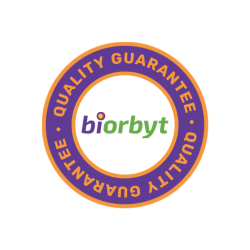You have no items in your shopping cart.
Cart summary

B7-H4 Protein, Human, Recombinant (hFc & Avi), Biotinylated
Catalog Number: orb1962055
| Catalog Number | orb1962055 |
|---|---|
| Category | Proteins |
| Description | B7 Homolog 4 (B7-H4) is glycosylated member of the B7 family of immune costimulatory proteins. Mature human B7-H4 consists of a 235 amino acid (aa) extracellular domain (ECD) with two Ig-like V-type domains, a 21 aa transmembrane segment, and a 2 aa cytoplasmic tail. It is widely expressed, including in kidney, liver, lung, pancreas, placenta, prostate, spleen, testis and thymus. B7-H4 negatively regulates T-cell-mediated immune response by inhibiting T-cell activation, proliferation, cytokine production and development of cytotoxicity. When expressed on the cell surface of tumor macrophages, plays an important role, together with regulatory T-cells (Treg), in the suppression of tumor-associated antigen-specific T-cell immunity. It also involved in promoting epithelial cell transformation. |
| Tag | C-hFc-Avi |
| Purity | 98.00% |
| MW | 70-95 KDa (reducing condition) |
| UniProt ID | Q7Z7D3 |
| Protein Sequence | Phe29-Ala258 |
| Expression System | HEK293 Cells |
| Biological Origin | Human |
| Biological Activity | B7 Homolog 4 (B7-H4) is glycosylated member of the B7 family of immune costimulatory proteins. Mature human B7-H4 consists of a 235 amino acid (aa) extracellular domain (ECD) with two Ig-like V-type domains, a 21 aa transmembrane segment, and a 2 aa cytoplasmic tail. It is widely expressed, including in kidney, liver, lung, pancreas, placenta, prostate, spleen, testis and thymus. B7-H4 negatively regulates T-cell-mediated immune response by inhibiting T-cell activation, proliferation, cytokine production and development of cytotoxicity. When expressed on the cell surface of tumor macrophages, plays an important role, together with regulatory T-cells (Treg), in the suppression of tumor-associated antigen-specific T-cell immunity. It also involved in promoting epithelial cell transformation. |
| Expression Region | Phe29-Ala258 |
| Storage | -20°C |
| Note | For research use only |
| Application notes | Reconstitute the lyophilized protein in distilled water. The product concentration should not be less than 100 μg/ml. Before opening, centrifuge the tube to collect powder at the bottom. After adding the reconstitution buffer, avoid vortexing or pipetting for mixing. |
| Expiration Date | 6 months from date of receipt. |


